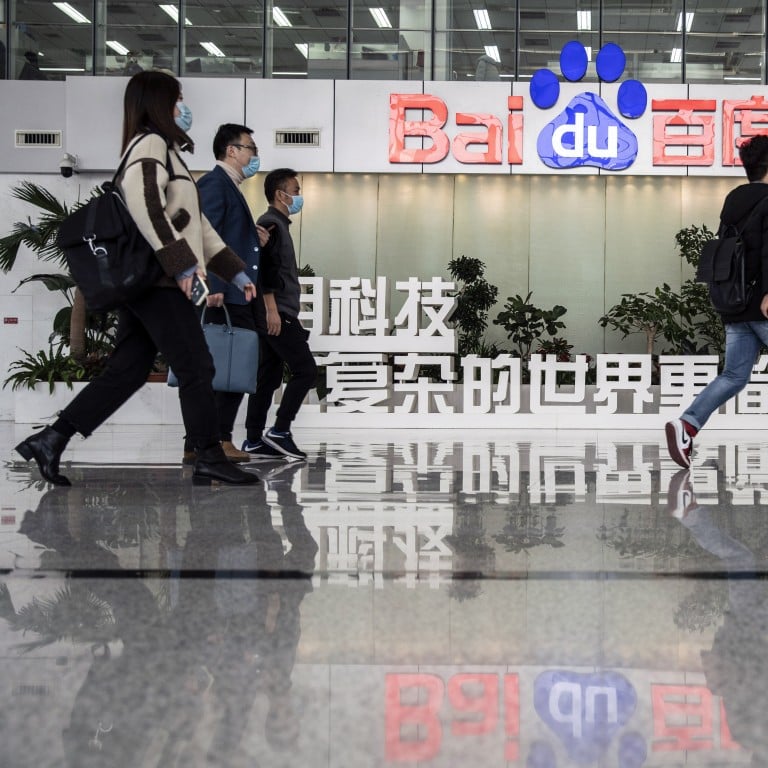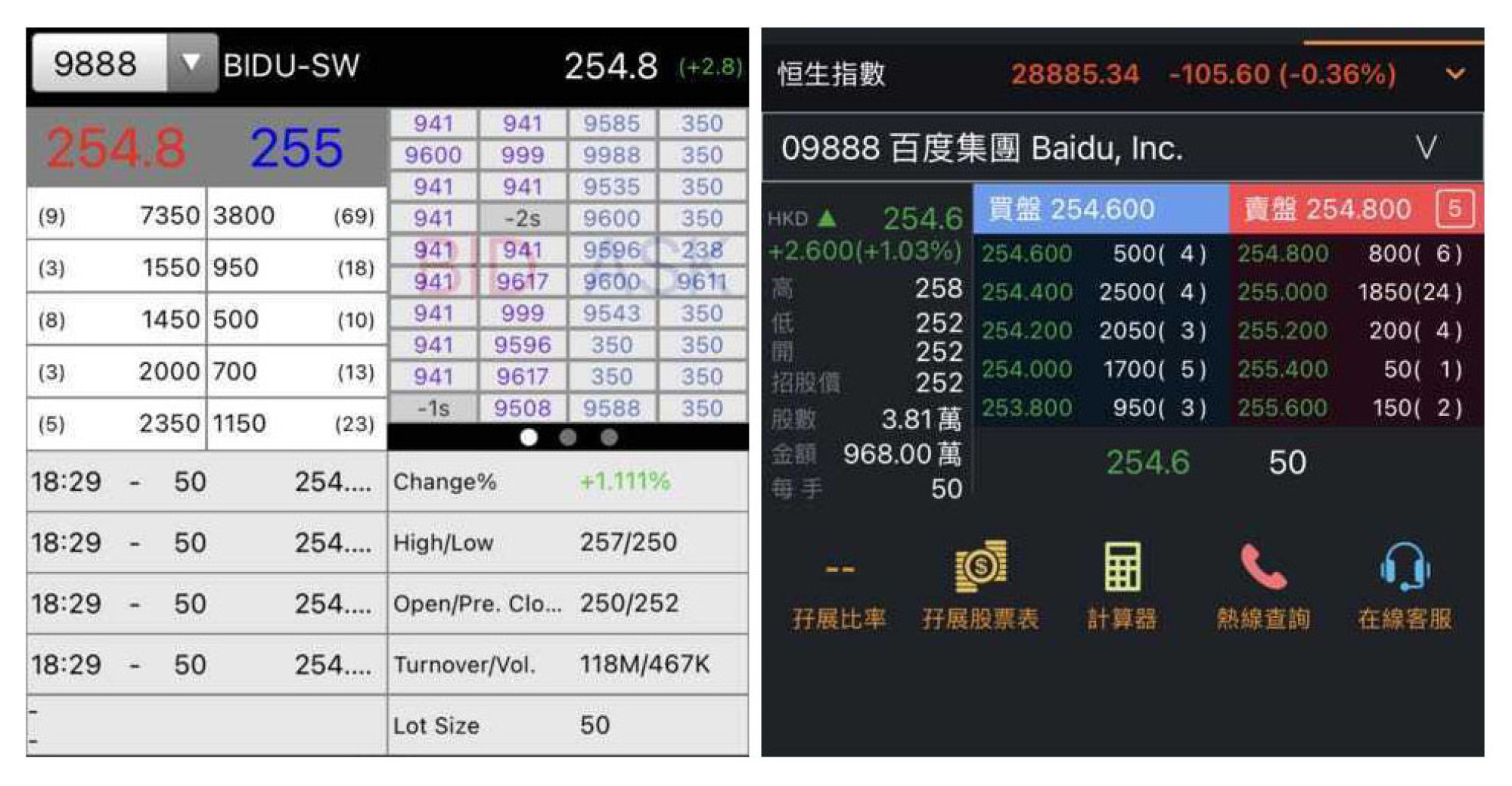
Baidu becomes first technology giant to make a flat debut in Hong Kong stock market this year as investors spurn the pivot by China’s dominant search engine towards artificial intelligence
- Baidu’s shares opened with a 0.8-per cent premium to its offer price of HK$252 before ending their first day of trading unchanged
- Baidu gained as much as 1.8 per cent, and briefly fell by 0.2 per cent below its IPO price
Its shares opened for trading at HK$254, according to stock exchange data, and rose to as high as HK$256.60 before ending their first day of trading unchanged at HK$252, capitalising the Beijing-based company at HK$700 billion.
They were earlier indicated at about HK$255 in grey-market trading on Monday, according to prices quoted at Phillip Securities and Bright Smart Securities. An overnight 3.4 per cent jump to US$266.13 in the firm’s American depositary shares helped shore up the stock following a rally in tech stocks in the US.
Baidu sold 95 million shares at HK$252 each in its secondary listing, compared with its high-end marketing target of HK$295.

“Investors are not as compulsive as during the Kuaishou IPO to go into the market and make some killing,” said Louis Tse Ming-kwong, managing director at Wealthy Securities. “I don’t think we have that atmosphere or sentiment any more.” He spoke before the stock started trading.
Tightening onshore regulatory oversight on internet-platform operators, and bond-market gyrations stemming from policy tightening concerns, have prompted money managers to turn to the safety of old-economy stocks.
Baidu’s 52-year old chief executive officer Robin Li Yanhong has about 17 per cent stake in the company he founded, according to the IPO prospectus. He retains 57 per cent voting power in the company.
The firm controls about 73 per cent of China’s so-called knowledge and information-centric internet platforms business by revenue in 2020, according to the prospectus. The market has grown from 89.6 billion yuan (US$13.8 billion) in 2015 to 173.6 billion yuan in 2019, and is projected to reach 342 billion yuan in 2025.


